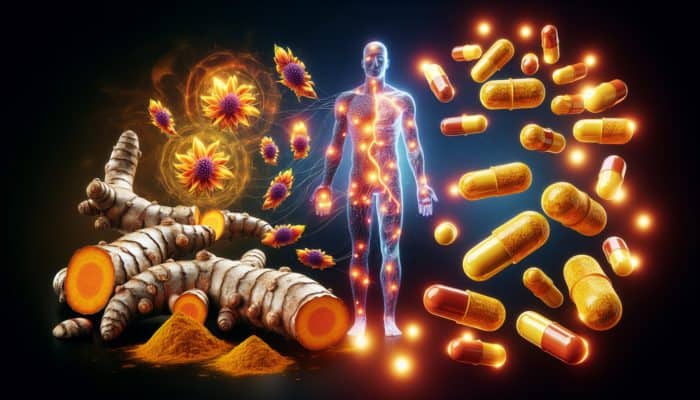Discovering the Benefits and Risks of High-Dose Caffeine Supplements for Energy Enhancement
Understanding High-Dose Caffeine Supplements and Their Intended Benefits

High-dose caffeine supplements are specialized products that contain much higher concentrations of caffeine than are typically present in everyday food and beverage options. These supplements come in various forms such as pills, powders, and energy drinks, appealing to a diverse audience eager to elevate their energy levels and improve mental clarity. For example, a standard cup of coffee usually contains around 100mg of caffeine, whereas high-dose supplements can provide upwards of 300mg per serving, making them an attractive choice for a quick energy boost. This concentrated source of caffeine is particularly appealing to several groups, including professionals battling fatigue during long workdays and students immersed in intensive study sessions as they prepare for exams.
The increasing popularity of high-dose caffeine supplements has ignited a thriving market that reflects a growing demand for swift and effective energy solutions. These products often claim benefits such as enhanced focus, improved endurance, and increased cognitive performance. However, it is crucial to carefully consider the potential consequences of consuming such high levels of caffeine. Gaining a thorough understanding of the complexities related to high-dose caffeine supplements is vital for consumers who want to strike a balance between their potential advantages and the inherent risks associated with their use.
Common Uses of High-Dose Caffeine Supplements Among Different Demographics
High-dose caffeine supplements are primarily favored by athletes and students, both of whom often seek to boost their physical performance and enhance cognitive functioning. Athletes frequently use these supplements to increase endurance and strength during training sessions and competitions, leveraging caffeine's stimulatory effects to effectively counteract fatigue. Conversely, students heavily rely on high-dose caffeine to sharpen their concentration and alertness, particularly during intense study periods when facing looming deadlines.
<pBeyond these main user groups, a significant number of professionals who work irregular hours—such as shift workers or those in high-stress environments—opt for high-dose caffeine to fend off fatigue and maintain productivity. This widespread usage illustrates a global trend of individuals from varied backgrounds searching for caffeine-infused solutions for effective energy management. Nevertheless, it is essential to acknowledge the serious health concerns associated with reliance on high-dose caffeine supplements, which require thorough understanding and consideration for responsible use.
Guidelines for Safe Caffeine Intake: Recommended Dosages and Limitations
The recommended caffeine dosage can differ significantly based on individual tolerance, age, and overall health. Experts generally advise that most adults should restrict their caffeine consumption to no more than 400mg per day, as surpassing this amount can lead to various adverse health effects. High-dose supplements, particularly those containing 300mg or more per serving, come with serious concerns regarding the risk of excessive consumption. Consumers may inadvertently overlook the total caffeine intake from other sources like coffee, tea, or energy drinks, complicating the landscape of caffeine consumption.
Providing education on safe caffeine dosage limits is crucial for users of high-dose caffeine supplements. By understanding the cumulative effects of caffeine from different sources, individuals can make informed decisions about their overall consumption. This knowledge is essential for avoiding the pitfalls associated with excessive caffeine intake, which can range from mild discomfort to severe health complications that may jeopardize long-term well-being.
Investigating the Health Risks Associated with High-Dose Caffeine Consumption
Effects of High Caffeine Intake on Cardiovascular Health: What You Need to Know
Excessive caffeine consumption can profoundly impact cardiovascular health, leading to increased heart rate and elevated blood pressure. These physiological responses are particularly alarming for individuals who have pre-existing heart conditions. As caffeine levels rise, the heart may react with rapid beats and constriction of blood vessels, significantly heightening the risk of symptoms such as palpitations or arrhythmias. In extreme cases, these symptoms can escalate to life-threatening situations, including heart attacks.
Moreover, habitual high-dose caffeine consumption can contribute to long-term cardiovascular issues, such as hypertension, which is recognized as a major risk factor for various cardiovascular diseases. Therefore, it is crucial for individuals at risk to approach caffeine consumption with caution. Regular check-ups on heart health and consultations with healthcare professionals become essential for anyone considering or frequently consuming high-dose caffeine supplements. Understanding the heart's intricate response to caffeine is vital for effectively mitigating potential health risks.
Influence of High Caffeine Intake on Mental Health and Anxiety Levels
The relationship between caffeine and mental health is multifaceted, with high doses often leading to increased anxiety and stress. While moderate caffeine consumption can provide a temporary lift in mood and alertness, excessive intake can worsen anxiety disorders, producing symptoms such as jitters, irritability, and panic attacks. Individuals with pre-existing mental health issues may find that elevated caffeine consumption aggravates their conditions, creating a cycle of dependency where they rely on stimulants to alleviate feelings of fatigue or low mood.
Additionally, high caffeine intake can disrupt sleep patterns, leading to insomnia and diminished sleep quality. This compounded effect may contribute to an overall decline in mental health, establishing a feedback loop where the need for caffeine increases due to fatigue caused by inadequate sleep. Recognizing this dynamic is crucial for anyone using high-dose caffeine supplements, particularly those with a history of anxiety or sleep disorders. Addressing both caffeine usage and underlying mental health issues is essential for achieving overall well-being.
Understanding the Risks of Caffeine Overdose and Toxicity

Overconsumption of caffeine can lead to a serious condition known as caffeine toxicity, which can manifest through a range of symptoms, including nausea, vomiting, and debilitating headaches. In extreme cases, excessive caffeine consumption may result in life-threatening complications such as seizures or cardiac arrest. The threshold for caffeine toxicity can vary significantly among individuals, influenced by factors such as body weight, tolerance levels, and metabolic rate. This variability underscores the importance of closely monitoring caffeine intake, especially when consuming high-dose supplements.
To mitigate the risks associated with caffeine overdose, individuals must remain vigilant about their consumption habits and overall health. Keeping a meticulous record of daily caffeine intake—whether from supplements, beverages, or food—is vital. Users of high-dose caffeine are encouraged to familiarize themselves with overdose symptoms and seek medical attention if severe reactions occur. This proactive approach to caffeine consumption can ensure a safer experience while still enjoying its stimulating benefits.
Expert Insights on Managing the Risks of High-Dose Caffeine Supplements
Essential Guidelines for Safe Caffeine Consumption
Nutrition and health experts frequently recommend that individuals maintain their caffeine consumption at 400mg per day to promote safety and reduce health risks. Caution is particularly warranted with high-dose caffeine supplements, as these can quickly cause individuals to exceed this recommended limit. Consulting healthcare providers before starting any new supplement regimen is critical, especially for those who have existing health concerns.
Here are key safety recommendations for the responsible use of high-dose caffeine supplements:
- Start with lower doses to accurately evaluate personal tolerance levels.
- Avoid combining multiple sources of caffeine to minimize the risk of overconsumption.
- Space out caffeine intake throughout the day instead of consuming large amounts at once.
- Monitor for any adverse effects and adjust intake accordingly.
By adhering to these guidelines, users can reap the benefits of caffeine while reducing associated health risks. A mindful approach to high-dose caffeine consumption is essential for maintaining a focus on moderation and personal health awareness.
Expert Evaluation of Risks Associated with Caffeine Consumption: What to Consider
Experts evaluate the risks associated with high-dose caffeine by analyzing clinical studies, case reports, and toxicological data. These assessments take into account a variety of factors such as individual tolerance levels, health status, and potential interactions with medications or other substances. Such evaluations require a comprehensive approach, as caffeine affects individuals differently based on numerous personal health factors.
To assess personal risk levels concerning caffeine intake, individuals can take proactive steps such as:
- Consulting healthcare professionals to review personal health conditions.
- Maintaining a detailed log of caffeine consumption and any related symptoms.
- Considering genetic factors that may influence caffeine metabolism.
- Being mindful of daily stressors or activities that could amplify caffeine's effects.
By implementing these strategies, individuals can better understand their unique tolerance to caffeine and responsibly manage their intake, ensuring a safer experience while enjoying the benefits of this popular stimulant.
Long-Term Health Consequences of High-Dose Caffeine Consumption: What You Should Know
Chronic use of high-dose caffeine can result in numerous health complications, particularly when consumption consistently exceeds recommended limits. Dependence on caffeine can pose significant risks, with individuals feeling compelled to consume it to function normally, often leading to chronic fatigue and withdrawal symptoms when they do not ingest it. Over time, this dependency can also increase the risk of chronic conditions such as hypertension and cardiovascular concerns due to persistently elevated blood pressure.
Furthermore, continuous high caffeine intake may negatively impact vital organs, especially the liver and kidneys, which play crucial roles in metabolizing caffeine. Experts emphasize the importance of moderation in caffeine consumption as a preventive strategy. They encourage individuals to periodically reassess their caffeine habits and consider reducing intake if they notice adverse effects. Understanding the long-term implications of caffeine use is paramount for maintaining overall health and wellness.
Assessing the Impact of High-Dose Caffeine on Athletic Performance
How Caffeine Enhances Athletic Performance: Key Insights
Caffeine is widely recognized for its potential to improve athletic performance, offering significant advantages such as increased endurance, enhanced muscle strength, and a decreased perception of effort during physical activities. Many athletes integrate caffeine supplements into their training regimens to overcome performance barriers, particularly during high-intensity workouts or competitive events. Research shows that moderate doses of caffeine can substantially boost performance metrics, making it a highly sought-after ergogenic aid across various sports disciplines.
However, athletes should exercise caution, as the effects of caffeine can level off at certain dosages. Beyond a specific threshold, typically around 3-6 mg/kg body weight, increasing caffeine intake may not yield further benefits and could instead provoke adverse side effects. This understanding encourages a more nuanced approach to caffeine consumption, prompting athletes to balance performance enhancement with the risks associated with overconsumption that could hinder their physical capabilities.
The Dangers of Caffeine Overuse in Sports and Fitness: What to Watch For
While caffeine can offer significant benefits in athletic contexts, over-reliance on high doses can lead to negative repercussions such as dehydration, muscle cramps, and impaired coordination. Athletes who push their limits with caffeine may overlook signs of dehydration, particularly when caffeine is consumed alongside physical exertion. This oversight can detract from performance and elevate the risk of injury, counteracting the intended benefits of caffeine as a performance-enhancing substance.
Athletes must develop a clear understanding of their caffeine limits and avoid surpassing safe dosages. Achieving a balance between performance enhancement and health is critical. Regularly evaluating caffeine's impact on physical performance can empower athletes to make informed decisions about their supplementation strategies, promoting sustainable athletic growth without compromising their health.
Recognizing Signs of Caffeine Overuse in Athletes
Caffeine overuse among athletes can manifest in various physiological and psychological symptoms. Commonly reported indicators include an elevated heart rate, increased nervousness, and gastrointestinal discomfort. Athletes experiencing these symptoms should take them seriously, as they may indicate that caffeine intake has exceeded safe levels. Ignoring these warning signs can lead to further complications, including diminished performance and a heightened risk of injury.
If symptoms persist, athletes should reduce their caffeine consumption and seek advice from healthcare professionals. Monitoring one’s response to caffeine, along with adjusting consumption behaviors, can significantly influence overall health and athletic performance. Athletes should prioritize understanding their body’s signals to ensure that their caffeine use remains beneficial rather than harmful.
Recommended Caffeine Dosages for Optimal Athletic Performance
For optimal athletic performance, experts recommend a caffeine dosage of 3-6 mg/kg of body weight, adjusted to individual tolerance levels. This dosage range typically proves effective in enhancing athletic performance without leading to the adverse effects associated with excessive caffeine use. Athletes contemplating caffeine supplementation should evaluate how their body reacts to various doses, enabling them to refine their approach for maximum benefits.
It is essential to note that higher doses do not necessarily translate to improved performance. In fact, excessive caffeine consumption can produce diminishing returns, resulting in side effects that overshadow potential advantages. Therefore, athletes should strive to achieve a balanced approach to their caffeine consumption, developing a sustainable regimen that supports their training objectives while minimizing health risks.
Safe Caffeine Practices for Athletes During Training
To ensure safe caffeine use during training, athletes should adopt several strategic practices. First and foremost, monitoring caffeine intake is critical. Keeping a consumption log can help individuals understand their patterns and evaluate the impact on performance and health. Staying properly hydrated is also essential, as caffeine can exert diuretic effects that may worsen dehydration during intense training or competition.
Athletes should also refrain from consuming caffeine too close to bedtime, as it can interfere with sleep quality. Gradually tapering caffeine intake leading up to important events can help assess its effects on performance and health. This gradual approach allows athletes to identify their ideal caffeine dosage while minimizing withdrawal symptoms or performance fluctuations resulting from abrupt changes.
Examining the Psychological Effects of High-Dose Caffeine Consumption
The Influence of Caffeine on Mood and Cognitive Function
High doses of caffeine can initially elevate mood and cognitive function, resulting in a temporary sense of alertness and euphoria. However, as tolerance develops, these effects may diminish, leading to mood swings, irritability, and cognitive decline. Chronic high caffeine consumption can disrupt sleep quality and duration, further exacerbating cognitive performance decline due to fatigue and dependency.
This cycle can culminate in adverse psychological outcomes, where users become increasingly reliant on caffeine to combat fatigue and maintain focus. The initial benefits of caffeine can quickly transform into deficits, highlighting the need for moderation and self-awareness in managing caffeine intake. Individuals must recognize how their caffeine consumption impacts their mood and cognitive performance, fostering a balanced relationship with this widely utilized stimulant.
Risks of Developing Caffeine Dependency and Withdrawal Symptoms
Dependency on high-dose caffeine can trigger a variety of withdrawal symptoms when intake is reduced or ceased. Common experiences include headaches, fatigue, irritability, and difficulty concentrating, all of which can disrupt daily life. The intensity of these symptoms can vary among individuals, influenced by factors such as total caffeine consumption and the duration of use.
To manage caffeine dependency effectively, individuals may need to adopt strategies that promote a gradual reduction in intake. This approach minimizes withdrawal symptoms and supports a smoother transition away from reliance on high-dose caffeine. Recognizing the potential for dependency is essential for fostering healthier consumption habits and improving overall well-being.
Strategies for Effectively Managing Caffeine Intake
Effectively managing caffeine intake is crucial for minimizing the risks connected with high-dose consumption. Individuals can utilize several strategies to develop healthier habits. Here are some effective techniques for managing caffeine intake:
- Track daily caffeine consumption to identify patterns and prevent excessive intake.
- Choose lower-dose alternatives instead of high-dose supplements.
- Incorporate caffeine-free days into the weekly routine to help reduce dependency.
- Gradually taper off caffeine intake instead of stopping abruptly to effectively manage withdrawal symptoms.
Implementing these strategies can help individuals cultivate a balanced relationship with caffeine, minimizing negative psychological effects while allowing for its benefits in moderation.
Long-Term Psychological Consequences of High-Dose Caffeine Consumption
Chronic consumption of high-dose caffeine can lead to significant psychological consequences, including heightened anxiety, paranoia, and an increased risk of mental health disorders. Prolonged stimulation of the nervous system due to excessive caffeine intake can amplify feelings of stress and discomfort, detracting from overall quality of life. Sleep disruptions caused by high caffeine levels further exacerbate these issues, creating a cycle of anxiety and dependence on caffeine.
This dynamic emphasizes the significance of moderation and mindfulness in caffeine consumption. Individuals must remain vigilant regarding their habits and recognize when they may be drifting into concerning territory regarding their mental health. Prioritizing mental well-being while regulating caffeine intake fosters a healthier, more sustainable lifestyle.
Impact of High-Dose Caffeine on Sleep Quality and Psychological Well-Being
High doses of caffeine can severely disrupt sleep patterns, negatively affecting both psychological health and overall wellness. Caffeine can prolong the time needed to fall asleep and reduce sleep quality, leading to increased fatigue and decreased emotional resilience. This sleep disruption may heighten stress, irritability, and emotional instability, complicating the relationship between caffeine use and mental health.
To mitigate these effects, individuals should take proactive steps to manage their caffeine intake, particularly during the hours leading up to sleep. Establishing a cutoff time for caffeine consumption throughout the day can significantly enhance sleep quality and, in turn, improve mental well-being. By prioritizing sleep hygiene alongside caffeine management, individuals can cultivate a healthier lifestyle that supports both physical and psychological health.
Best Practices for Reducing the Risks of High-Dose Caffeine Supplements
Steps to Safely Reduce Caffeine Intake
Reducing caffeine intake safely requires a thoughtful and strategic approach to minimize withdrawal symptoms. Gradually tapering caffeine consumption over time can effectively facilitate the transition away from high doses. Replacing high-dose supplements with lower-dose alternatives or caffeine-free options can help manage cravings while still providing some energy.
Additionally, staying adequately hydrated is vital during this process, as proper hydration can alleviate some withdrawal symptoms. Implementing these strategies allows individuals to navigate caffeine reduction safely, ensuring that the transition does not compromise overall health.
Natural Alternatives to High-Dose Caffeine: Exploring Healthier Options
For those seeking alternatives to high-dose caffeine supplements, several natural options can provide energy boosts without the associated risks. Natural beverages like green tea and yerba mate offer moderate caffeine levels alongside beneficial antioxidants. Adaptogenic herbs such as ashwagandha and Rhodiola rosea can also enhance energy levels and resilience to stress without the negative side effects linked to excessive caffeine.
Exploring these alternatives enables individuals to maintain energy and focus while prioritizing their health. By broadening their understanding of energy-enhancing methods, users can adopt more sustainable and safer practices for managing fatigue and enhancing performance.
Benefits of Professional Guidance in Caffeine Management
Consulting healthcare professionals can offer personalized strategies for effectively managing caffeine intake. Experts can provide tailored recommendations regarding safe dosages, help identify potential interactions with medications, and guide individuals in reducing dependence. Sharing real-world examples of successful caffeine management can illustrate effective practices, such as maintaining a balanced diet rich in whole foods and incorporating regular physical activity to support natural energy levels.
By seeking advice from professionals, individuals can gain insights into responsibly managing their caffeine consumption, fostering a healthier relationship with this widely used stimulant.
Monitoring and Addressing Side Effects from High-Dose Caffeine
Regularly monitoring symptoms associated with high-dose caffeine is crucial for identifying potential side effects early on. Common issues such as insomnia, anxiety, and heart palpitations should not be ignored. Individuals experiencing these symptoms should reassess their caffeine intake and make necessary adjustments. Discontinuing use or decreasing dosage can effectively alleviate these side effects.
Maintaining open communication with healthcare providers about caffeine use and any emerging symptoms will further enhance safety in caffeine consumption, ensuring that users can enjoy its benefits while minimizing health risks.
The Importance of Understanding Caffeine Content in Products
Being aware of the caffeine content in supplements and beverages is essential for avoiding accidental overconsumption. Carefully reviewing labels and being aware of serving sizes and recommended dosages empowers individuals to make informed choices regarding their caffeine intake. Education about caffeine levels allows users to navigate the wide array of caffeinated products available, fostering a culture of responsible consumption.
Staying informed about caffeine content in various products not only enhances individual safety but also promotes a broader understanding of how caffeine impacts health. This knowledge serves as a foundation for making healthier lifestyle choices and effectively managing energy levels.
Regulatory and Safety Considerations for Caffeine Supplements
Current Regulations on Caffeine Supplements: What Consumers Should Know
Regulations surrounding caffeine supplements can differ widely by region, often requiring clear labeling of caffeine content and warnings about potential risks associated with high doses. Consumers should familiarize themselves with these regulations to make informed decisions regarding the supplements they choose to utilize. While some countries enforce strict guidelines on labeling and marketing, others may adopt more lenient regulations, highlighting the importance of consumer vigilance.
Understanding the regulatory landscape can assist individuals in navigating the complexities of caffeine products available in the market. Staying informed about safety standards and product recalls can further enhance consumer protection and foster a safer environment for caffeine supplementation.
Ensuring Safety Through Quality Control Measures in Caffeine Supplements
Reputable manufacturers of caffeine supplements adhere to stringent safety standards and quality control protocols to ensure that their products are safe for consumption. Seeking products with certifications and third-party testing can provide consumers with peace of mind, confirming that their chosen supplements meet established safety criteria. This level of scrutiny helps mitigate risks associated with low-quality or adulterated products that may contain harmful additives.
By prioritizing safety in product selection, consumers can greatly reduce the risks associated with high-dose caffeine supplements, promoting responsible consumption practices.
Enhancing Consumer Awareness and Education on Caffeine Risks
Educating consumers about the risks of high-dose caffeine is essential for promoting safe usage. Public health campaigns and educational resources can significantly improve individuals' understanding of caffeine and its effects, empowering them to make informed choices regarding their consumption. Raising awareness about the implications of excessive caffeine intake fosters a culture of moderation, helping consumers recognize when their caffeine habits may lead to harmful dependency.
Increasing consumer knowledge plays a crucial role in shaping healthier caffeine consumption trends. By providing accessible information, individuals can better navigate their caffeine choices and prioritize their health.
Reporting Adverse Effects and Product Recalls: A Consumer Responsibility
Consumers should promptly report any adverse effects experienced from caffeine supplements to regulatory agencies. This feedback is crucial for monitoring product safety and holding manufacturers accountable. Additionally, companies are required to notify consumers of product recalls to maintain transparency and comply with safety regulations.
By actively participating in reporting adverse effects, consumers contribute to the larger conversation surrounding product safety and quality. This collective vigilance can lead to improved standards and practices within the industry, fostering a safer environment for all users of caffeine supplements.
Frequently Asked Questions Regarding High-Dose Caffeine Supplements
What is Considered a High Dose of Caffeine?
A high dose of caffeine is typically regarded as 300mg or more per serving, significantly surpassing the average caffeine content found in a standard cup of coffee, which is approximately 100mg.
What Symptoms May Indicate Caffeine Overdose?
Symptoms of caffeine overdose can include nausea, vomiting, rapid heartbeat, and, in severe cases, seizures or cardiovascular complications. It is crucial to monitor caffeine intake to prevent these symptoms from arising.
Can Caffeine Affect Sleep Quality?
Yes, high doses of caffeine can severely disrupt sleep patterns, leading to difficulties in falling asleep and maintaining quality sleep, which negatively impacts overall health.
How Can I Safely Reduce My Caffeine Intake?
Gradually tapering off caffeine consumption, substituting high-dose supplements with lower-dose options, and ensuring adequate hydration are effective strategies for safely reducing intake.
Are There Natural Alternatives to High-Dose Caffeine?
Yes, natural alternatives such as green tea, yerba mate, and adaptogenic herbs can provide energy boosts without the risks associated with high-dose caffeine.
What Daily Caffeine Limit is Recommended?
Experts recommend keeping caffeine intake to no more than 400mg per day for most adults to minimize potential health risks.
How Can I Tell if I Have a Caffeine Dependency?
Signs of caffeine dependency may include experiencing withdrawal symptoms such as headaches, fatigue, and irritability when caffeine intake is reduced or eliminated.
Can Caffeine Exacerbate Anxiety Disorders?
Yes, excessive caffeine consumption can worsen anxiety symptoms, leading to increased nervousness and stress levels, particularly in individuals with pre-existing anxiety disorders.
What Strategies Can Help Effectively Manage Caffeine Intake?
Strategies for managing caffeine intake include tracking daily consumption, opting for lower-dose alternatives, and incorporating caffeine-free days into your routine.
Is it Safe to Combine Caffeine with Other Stimulants?
Combining caffeine with other stimulants can heighten the risk of adverse effects. Therefore, it is essential to consult a healthcare professional before doing so to ensure safety.
Connect with us on Facebook!
The Article Risks of High-Dose Caffeine Supplements: A Universal Concern appeared first on https://athleticsupplement.com
The Article High-Dose Caffeine Supplements: Risks Everyone Should Know Was Found On https://limitsofstrategy.com
The Article Caffeine Supplements: Key Risks Everyone Should Be Aware Of First Appeared ON
: https://ad4sc.com














Leave a Reply